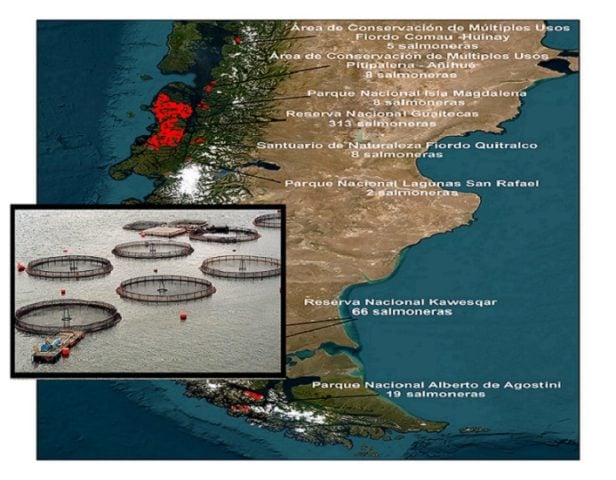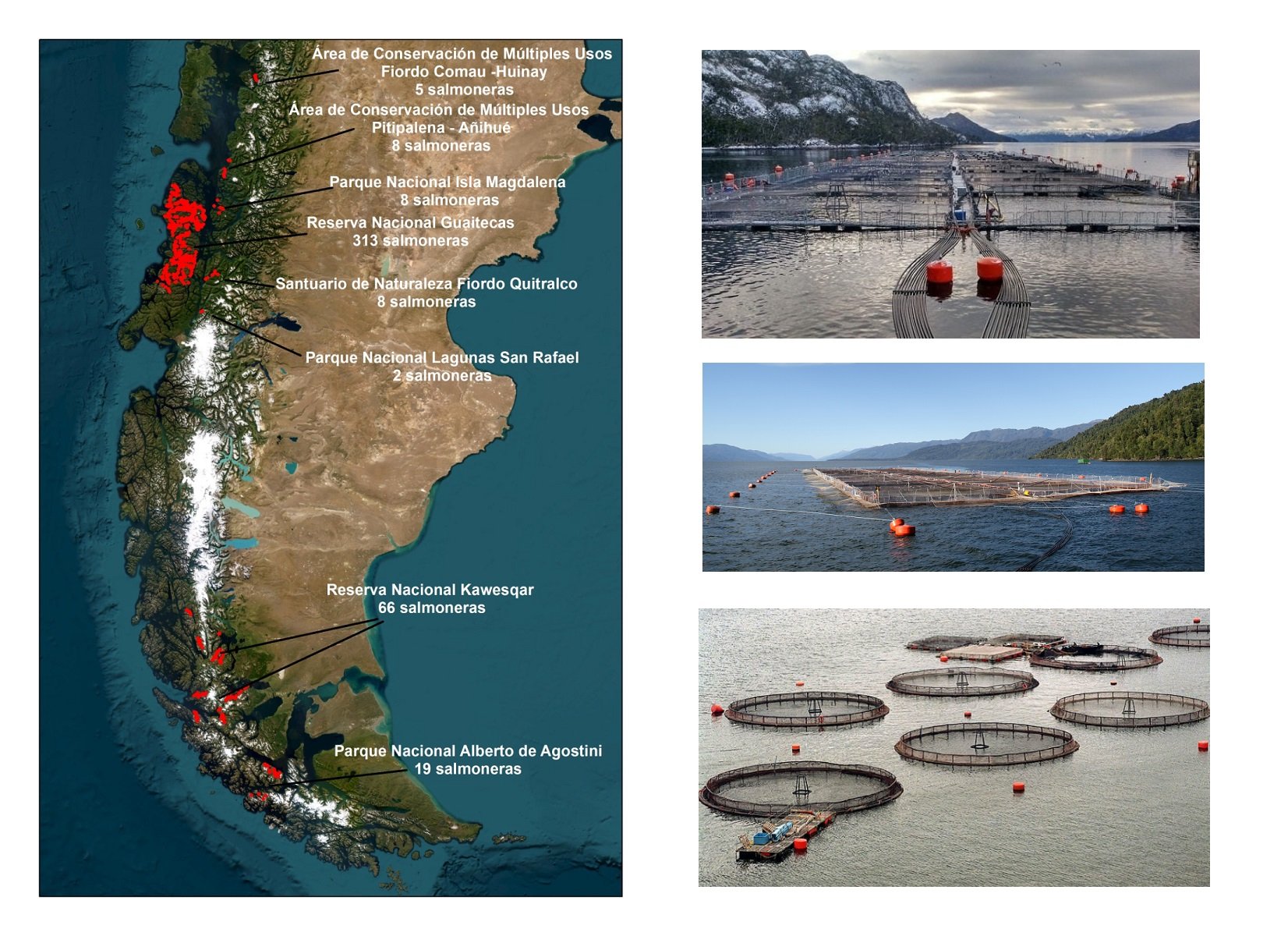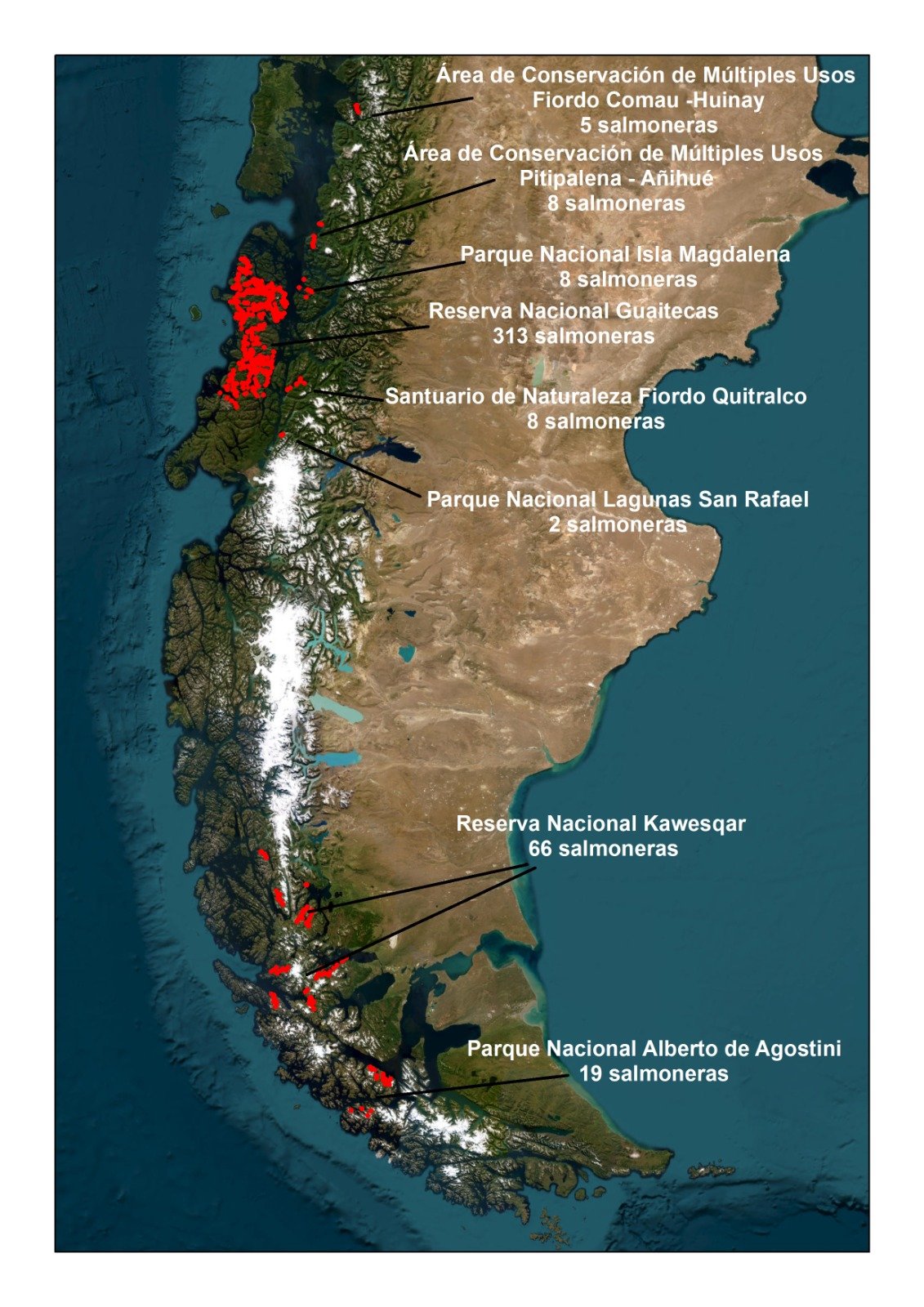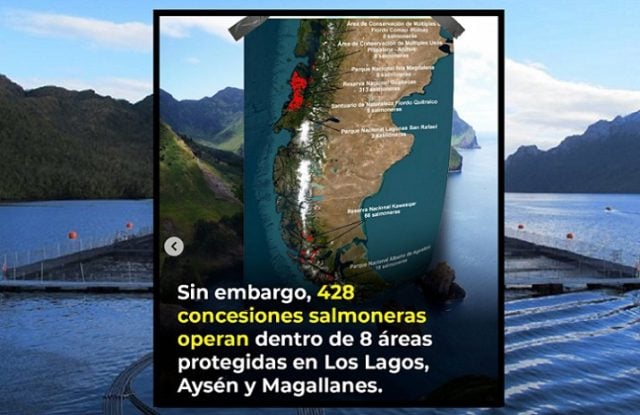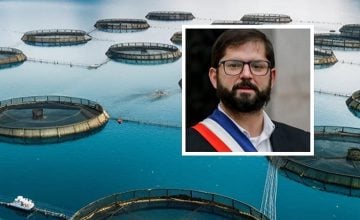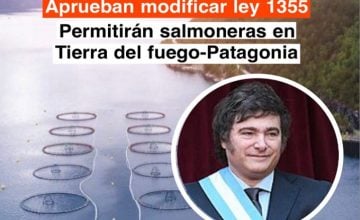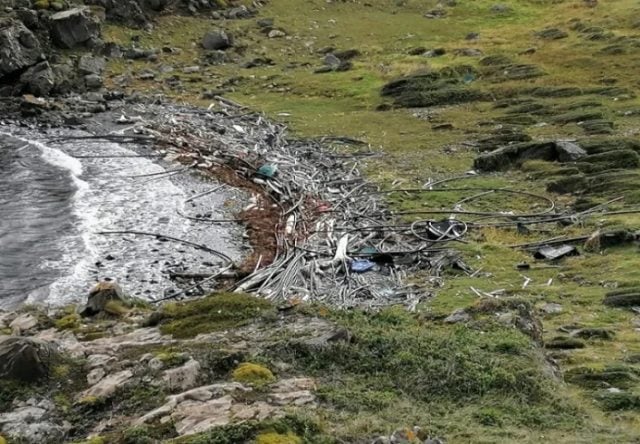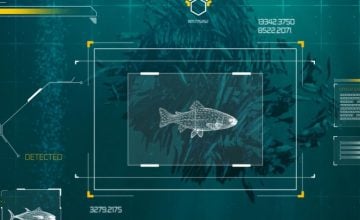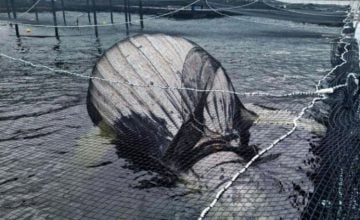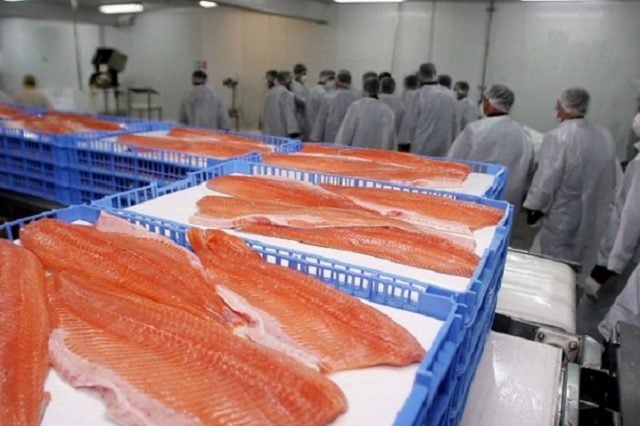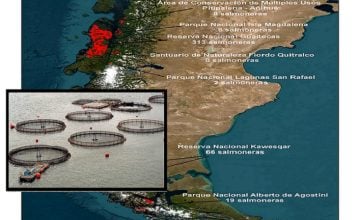Original article: Día Nacional de las Áreas Protegidas: la paradoja de un país que celebra mientras entrega sus ecosistemas a la industria salmonera
Over 400 Salmon Farming Concessions Operate in Protected Areas of Patagonia
This Saturday, November 8, Chile observes National Protected Areas Day, established by Law 21,596, to be celebrated every second Saturday in November. The day aims to raise public awareness about the ecological value of protected territories and the vital role communities play in their preservation. This initiative aligns with the country’s international commitment towards the 30×30 Goal, which seeks to ensure that by 2030, at least 30% of the planet’s land and marine areas are under effective protection.
The Ministry of the Environment has emphasized that the preservation of nature, biodiversity, and environmental heritage are essential pillars for life and sustainable development. However, the celebration is overshadowed by a structural contradiction: Chile allows the establishment and operation of the salmon farming industry within protected areas, even though these zones were specifically created to safeguard fragile ecosystems and unique species.
In Patagonia, the situation is dire. According to data compiled by the Defend Patagonia campaign, there are currently 408 active salmon farming concessions within state conservation units, broken down as follows: 313 in Las Guaitecas National Reserve, 66 in Kawésqar National Reserve, 19 in Alberto de Agostini National Park, 8 in Isla Magdalena National Park, and 2 in Laguna San Rafael National Park. These figures reveal that aquaculture is expanding even into the country’s highest conservation areas.
From the affected communities, the testimonies are compelling. Daniel Caniullan, a diver, fisherman, and long-time leader of Indigenous communities in the Aysén region, is well-acquainted with the fjords and channels of the Las Guaitecas archipelago, home to the namesake reserve. Caniullan states: «The impacts of the industry in protected areas are increasing, and the current governments only make invisible the reality of these territories. That is why we have joined in declaring the salmon farming area as a sacrifice zone, as the authorities know what is happening, maintain a complicit silence, and thus allow impunity to continue.»
Environmental impacts have been extensively documented by scientists and coastal communities. In the past decade, 5.4 million salmon have escaped from industrial farms, altering marine biodiversity. «The consumption of native species by non-native species, such as salmon, could be just one of the direct impacts,» states marine biologist and researcher Alejandro Pérez-Matus in a publication from the Pontifical Catholic University, also warning since 2020 about the transfer of diseases and the massive use of antibiotics. The researcher adds that industrial cages turn ecosystems into «ecological traps,» degrading the habitat of local species.
Artisanal fishermen from Chiloé and Aysén report the progressive disappearance of native fish and crustaceans, a situation documented in the audio-visual report «The Cry of the Sea», which highlights the chemical residues, uneaten feed, and accumulated antibiotics beneath the cage floating farms. Concurrently, socio-environmental organizations warn that the loss of flora and fauna is accelerating with global warming and the expansion of extractive industries, reinforcing the urgency to effectively protect more marine and terrestrial areas.
In this regard, Juan Carlos Viveros, an activist and member of socio-environmental organizations in Chiloé, now part of Defend Patagonia, states: «Following the environmental disaster of 2021, when thousands of tons of dead salmon inundated the Comau fjord, affecting the protected area, we realized that the State, all governments, were allowing the severe cumulative impacts of the industry to spill into legally protected zones meant for conservation. This aberration pushed us to create the campaign for Protected Areas Without Salmon Farms, where we advocate for legislation to end the concessions. After years of struggle, we got President Boric to include this issue in his agenda, announcing in Magallanes that he would put an end to concessions in protected areas. Unfortunately, it was just an announcement without concrete action. That’s why today we take a step further and declare all protected areas with industrial salmon farming concessions as SACRIFICIAL ZONES.»
The Kawésqar Community of Nomadic Family Groups of the Sea adds to this critique, stating: «The Kawésqar National Reserve, which encompasses the Kawésqar Sea or Chams Wæs, is the most important part of ancestral territory. Additionally, it is administratively separated from the adjacent land that is now Kawésqar National Park, and it has had to endure the onslaught of the destructive salmon farming industry. Today’s Kawésqar Reserve is further threatened with the destruction of its management plan due to salmon lobby efforts and their political operators, who have consistently misinformed the public, launching disinformation campaigns claiming that artisanal fishing will be affected, which has already been widely discounted. Artisanal fishing is considered within the management plan as a conservation object.»
They add: «The fight for the Kawésqar Reserve is to make its true value known, to prevent information manipulation, and to maintain the management plan that took more than four years to create… This is a protected area that contains highly destructive salmon farming activities designed as a sacrifice zone. We, the Kawésqar who understand and defend the sea, do not want this industry to expand because the damage to the territory and marine ecosystem is imminent and evident, even with those 67 concessions still operating.»
In this context, Defend Patagonia asserts that the government «cannot celebrate conservation while authorizing polluting industries in the very parks it claims to protect.» The organization publishes on social media where they delve into the background and citizen demands regarding the advance of salmon farming in protected areas.
